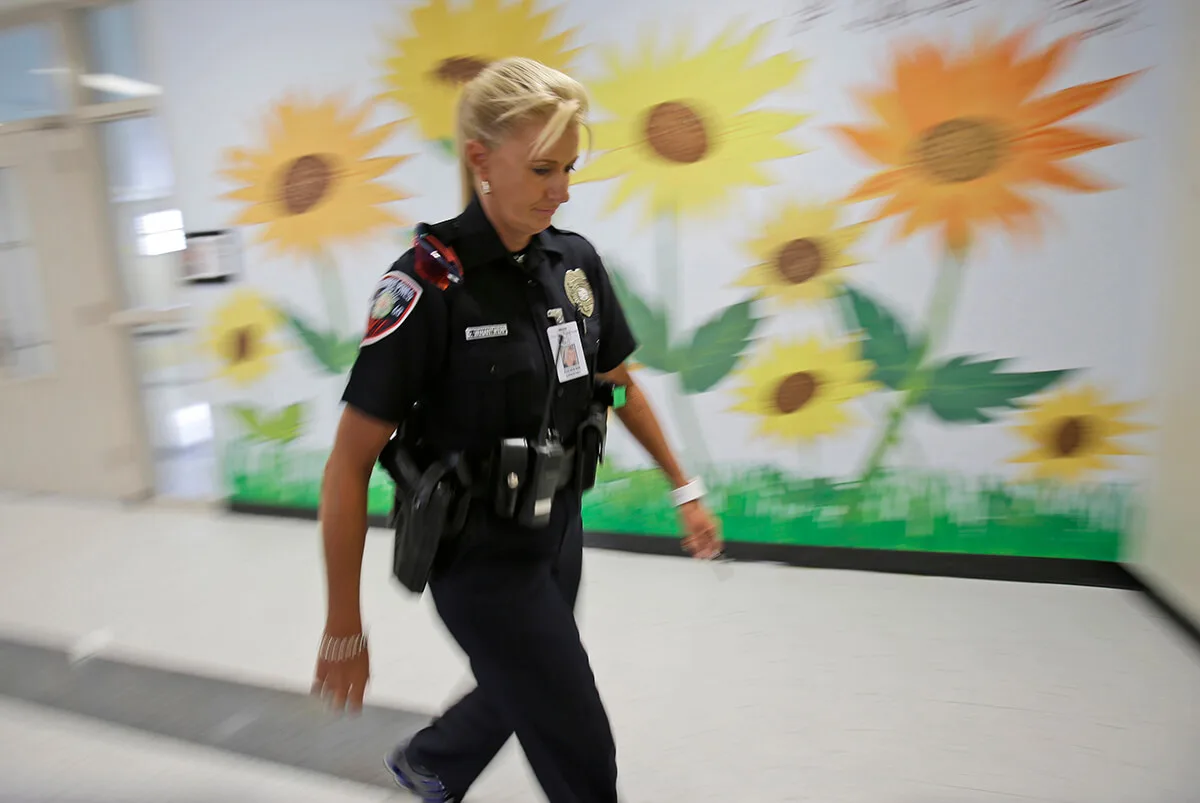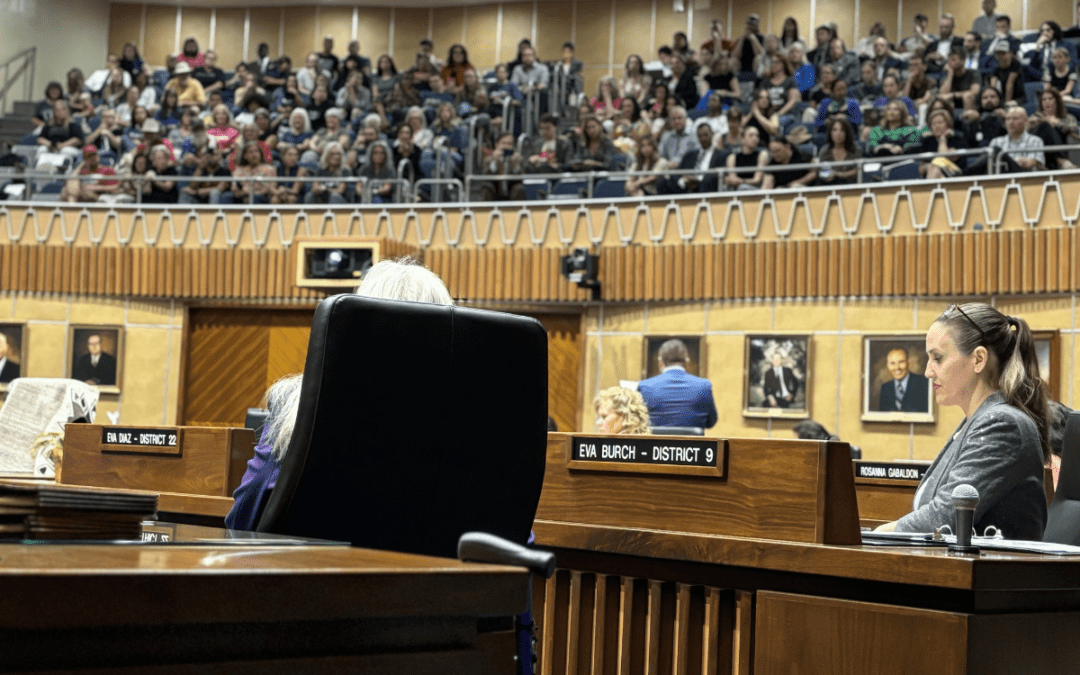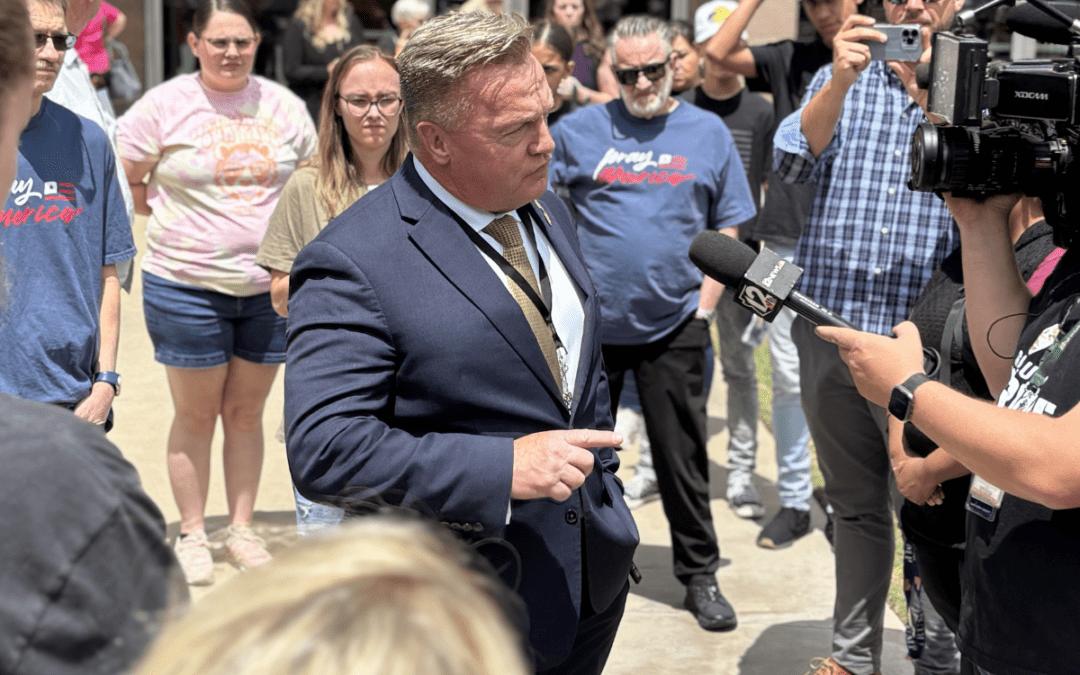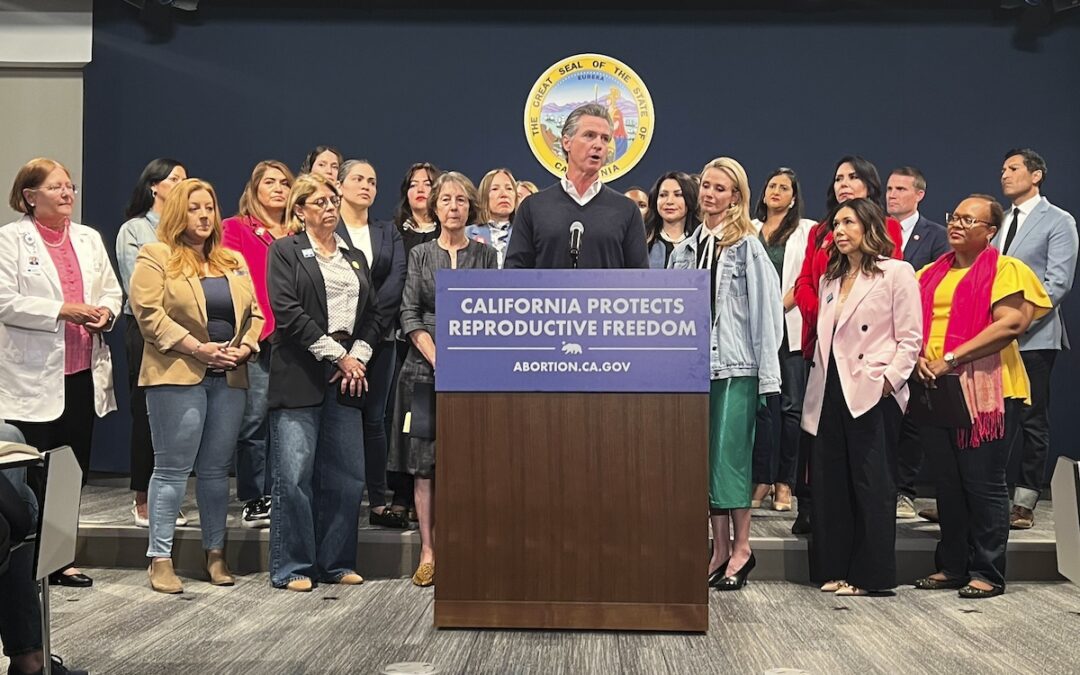
Activists have celebrated the district’s decision, but questions remain.
The Phoenix Union High School District announced Monday it will not renew its contract with the police to provide school resource officers (SROs) in its buildings this upcoming term.
Superintendent Dr. Chad Geston said the $1.2 million in savings from the five officers’ salaries will instead be used in part to launch a participatory budgeting initiative.
Participatory budgeting is a practice in which community members are able to propose and vote on various ideas for the use of funds.
The district said $500,000 each will go to a “staff-driven process” and a “student-driven process,” while $200,000 will go to one for parents.
Celebration, But With Questions
Activists have celebrated the district’s decision, but questions remain.
Puente Youth Movement, an offshoot of Puente Human Rights Movement that has been fighting for the removal of SROs for years, has asked if Phoenix Union’s move is a long-term commitment.
Former student Abia Khan, who graduated from North High School in the spring, shares that concern.
Phoenix Union has announced it will begin this fall with “full remote learning,” meaning no students will be on campus for the time being.
“There’s not really any point in renewing the contract and having SROs because there’s no kids on campus,” Khan told The Copper Courier. “So we feel like it might have been more motivated by the pandemic than everything that’s going on around us.”
Phoenix Union hasn’t made it clear that SROs will remain off campus once the next school year comes around.
The American Civil Liberties Union (ACLU) said the move was overdue but remained optimistic about the future.
“We think it is an overall win for students but it’s a decision that should’ve come long ago,” a spokeswoman wrote in a statement to The Copper Courier. “We can’t speak to how the pandemic influenced this decision but we hope that the school district continues to include student input in decisions that impact students daily lives.
Will the Money Help Students?
Khan had started an online petition in early June calling on the school district to end its contract with police, which gained over 3,800 signatures.
She said at the time she and other organizers wanted to see the money spent on SROs to go toward counselors, social workers, and other mental health support.
The Arizona education system as a whole struggles with providing enough mental health support to students. For every 905 students in Arizona, there is only one counselor, giving the state the worst ratio in the country. The American School Counselor Association recommends a ratio of 250 to 1.
Superintendent Kathy Hoffman has expressed agreement with this stance, saying schools should focus on hiring counselors and social workers rather than beefing up law enforcement presence.
RELATED: While The Push to Defund Phoenix Police Grows Stronger, Activists Want Officers Out of Schools
And last year when the state gave schools the choice to use grant money to hire their choice of these roles, educators expressed a preference for mental health professionals over officers. In fact, counselors and social workers made up nearly 75% of the total requests.
While Phoenix Unions’ money now saved from SROs isn’t directly being put toward these efforts, it could end up there through the participatory budgeting process.
But it’s unclear how long that will take.
Khan said she has concerns about who will hold the power in this process.
“We’re just wondering, who would be managing that money, and who would control how that money is spent, and how can people be held accountable?” she said.
Phoenix Union said it will discuss next steps at its July 17 meeting at 2 p.m.
Why No SROs?
Having police officers present on campus has long been a controversial issue.
“It’s definitely a conversation that was brought to the district by students,” Puente Youth Movement spokeswoman Máxima Guerrero told The Copper Courier. “If those conversations hadn’t started then, we wouldn’t be with this decision today, through [students’] advocacy, attending school board meetings, meetings with district leadership … and pushing for this change.”
Students have said they feel the same discrimination in schools, with children of color being targeted more often than their white peers. Activists also point out how undocumented students often feel intimidated by law enforcement presence on campus, despite the students having the right to be there.
An ACLU report found that children as young as five have been charged with “crimes” for everyday misbehavior: throwing a paper airplane, kicking a trash can, and wearing sagging pants.
RELATED: This Group Has Been Fighting to Remove Cops From Schools for Over a Decade
Activists call this cycle of discrimination and criminalization the “school-to-prison pipeline.”
This pipeline then feeds into nonrepresentative prison populations. For example, in Arizona, 15% of the prison population is Black, while only 5% of the state’s population is.
Guerrero said the key to making sure this is a lasting change is to continue asking questions and making sure leaders are being held accountable.
“We want to make sure that there’s a long-term commitment, that there’s a resolution that’s actually brought up through the school board,” she said, “and that throughout the implementation plan that they have, that students are going to be centered [and] included.”
Politics

Democrats successfully force vote on repealing 1864 abortion ban, passes House
The Arizona legislature moved forward two bills Wednesday that would repeal the state’s 1864 abortion ban. A bill to repeal the ban has been...

State Official: 1864 abortion ban gives Arizona ‘black eye’
Arizona’s role at the forefront of the climate crisis, defending democratic elections, and protecting reproductive rights has caught the attention...
Local News

Arizona Sens. Anthony Kern, Jake Hoffman, indicted for fake election scheme
Eighteen individuals involved in a conspiracy to overturn Arizona’s election results in 2020 were indicted by a grand jury Wednesday and charged...

Gov. Gavin Newsom wants to let Arizona doctors provide abortions in California
California law generally allows abortion up to the point of fetal viability, which is around 24 weeks. SACRAMENTO, Calif. (AP) — Arizona doctors...





